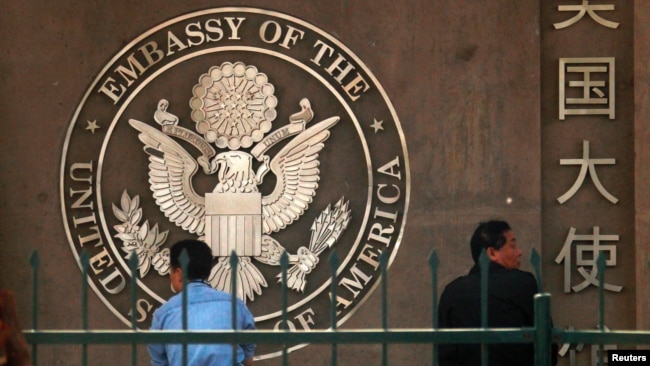米国ビザ手数料引き上げ、これが意味することは?
現在、日本は米国のビザ免除対象国となっており、ハワイを含むアメリカへの入国目的が短期商用または観光であり、滞在日数(乗り継ぎを含む)が90日以内であれば、米国大使館・在日アメリカ大使館でのビザ取得は免除されますが、事前にオンラインにて渡航認証許可を得る必要があります。この事前渡航認証システムがESTA(エスタ)です。
2年前にNZに旅行に行った折にも、電子渡航認証NZeTAが必要でニュージーランド移民局ホームページから費用支払いをしました。
日本国籍のパスポート所持者がビザなしで渡航可能な国は191か国ですが、33か国は基本的にビザの取得が必要となっています。
(余談ですが、このニュース聞いていて、あの方のビザ取得がいかに早かったかを思い出しました。)
手数料値上げ、さて、その狙いは何でしょうか?
今日もVOAで英語を学びましょう!!
米国、非移民ビザのコスト引き上げを検討(和訳)
US Wants to Raise Cost of Nonimmigrant Visas
February 03, 2022
ジョー・バイデン大統領の政権は、ほぼすべての非移民ビザの費用を引き上げることを提案しています。
米国当局は、ビザサービスのコストバランスを取るために値上げが必要だとしています。しかし批評家たちは、もし書類の待ち時間が短縮されなければ、ビザ費用の増加は米国に来る旅行者や学生の減少を意味しかねない、と言います。
米国政府の公式機関誌である連邦官報は、12月下旬にこの提案を発表しました。それによると、国務省は新価格を9月までに発効させる見込みだといいます。国務省は、2月28日まで値上げ案に関する意見を受け付けています。
ディビット ビア氏は、ワシントンDCの研究団体Cato Instituteの移民政策専門家です。ビア氏はVOAに対しこのように語っています:「米国への観光・旅行がすでに史上最低水準にあるときに、すべての料金引き上げが行われ、国務省は多くの場所で観光・ビジネス旅行ビザに6ヶ月から1年の待ち時間を課しています。」
国務省の情報によると、最も人気のあるビザは観光、ビジネス、留学のためのビザです。
非移民ビザは、定められた条件下で、観光旅行や米国での一時的な居住、就労、就学を許可するものです。B1およびB2ビザは、ビジネスおよび観光用です。F、M、Jビザは学生ビザです。価格は160ドルから245ドルへ、54%の値上げとなります。ビザH、L、O、P、Q、Rは雇用のためのビザで、価格は190ドルから310ドルへ、63%の上昇となります。
ビア氏は、一番大事なことは、ビザを早く出すことだといいます。国務省が費用を上げる一方で、サービスを向上させなければ、結果として米国への旅行者が減ることになるだろうと述べています。
長い待ち時間
バイデンは就任初日、2021年の米国市民権法を提示しました。この法案は、移民政策に大きな変化を求めるものでした。しかし、議会はこの法案に手をつけていません。
移民の専門家の中には、バイデン氏はトランプ前大統領の移民政策の多くを覆したと言う人もいます。これらの専門家は、トランプからの大統領令が、より長い待ち時間を生み出す原因になっていると言います。
また、国務省はCOVID-19の健康危機を理由に、2020年にすべての米国大使館と領事館で通常のビザサービスを停止しました。新型コロナウイルスに関連する制限が待ち時間の長さに拍車をかけています。Cato Instituteによると、国務省は徐々にビザサービスを復活させていますが、約4分の1のオフィスが一部または完全に閉鎖されています。
ビア氏によると、1月にはほとんどの領事館で、出張者や観光客のビザの予約に202日間の待ち時間が発生したと報告されました。2021年4月、通常の待ち時間は95日でした。学生や交換訪問者の場合、待ち時間は約38日でした。これは1年前の25日から増加しています。技能労働者や臨時労働者など、その他のほとんどのビザの予約待ち時間は62日です。2020年4月の40日から増加しています。
学生、労働者への影響
国務省の広報担当者は、領事業務はビザ料金によって支えられていると説明しています。今回の手数料引き上げ案は、同庁がサービスを提供するためのコストを確実に回収するためのものです。
ジル・ウェルチ氏は、高等教育と移民に関する学長連合会Presidents' Alliance on Higher Education and Immigrationの政策アドバイザーを務めています。ウェルチ氏によると、コスト増はサービスの向上、特に待ち時間の短縮につながる必要があるとしています。これは、入学までに米国に入国する必要がある学生にとって重要なことです。同団体は、この新しい政策が留学生にどのような影響を与えるか、まだ検討中です。
US Wants to Raise Cost of Nonimmigrant Visas
The administration of President Joe Biden has proposed increasing the cost of almost all nonimmigrant visas.
U.S. officials say the price increase is needed to balance the cost of visa services. But critics say, if the wait times for the documents are not shortened, increased visa costs could mean fewer travelers and students coming to the United States.
The Federal Register, the official journal publication of the U.S. government, published the proposal in late December. It said the State Department expects the new prices to go into effect by September. The State Department is accepting comments on the proposed increases until February 28.
David Bier is an immigration policy expert at the Cato Institute, a research group in Washington, D.C. Bier told VOA: “All of the fee increases are happening at a time when tourism and travel to the United States is already at an all-time low, and the State Department is imposing waits of six months to a year in many places for a tourist- or business-travel visa.”
State Department information shows that the most popular visas are for tourism, business and study.
A nonimmigrant visa permits the holder to travel as a tourist or live, work or study temporarily in the U.S. under defined conditions. B1 and B2 visas are for business and tourism. Visas F, M, and J are student visas. Their price is increasing from $160 to $245, a 54 percent increase. Visas H, L, O, P, Q, and R are for employment. Their price is increasing from $190 to $310, a 63 percent increase.
Bier said that the most important thing is that the visas are given quickly. He said, if the State Department increases the cost, but does not improve service, the result will be fewer travelers to the U.S.
Longer waits
On Biden’s first day in office, he presented the U.S. Citizenship Act of 2021. The bill would have called for big changes in immigration policy. But, Congress has not acted on the legislation.
Some immigration experts say Biden overturned many of former President Trump’s immigration policies. These experts say an executive order from Trump is responsible for creating longer wait times.
In addition, the State Department suspended usual visa services at all U.S. embassies and consulates in 2020 because of the COVID-19 health crisis. Restrictions related to the new coronavirus have added to longer wait times. The Cato Institute said that the State Department will slowly bring back visa service, but about a fourth of offices are partly or fully closed.
Bier said in January most consulates reported waits of 202 days for a visa appointment for business travelers or tourists. In April 2021, the usual wait was 95 days. For students and exchange visitors, the wait was about 38 days. That is up from 25 days a year ago. Waits for appointments for most other visas, including skilled and temporary workers, is 62 days. That is up from 40 days in April 2020.
Effect on students, workers
A State Department spokesperson explained that consular operations are supported by the visa fees. The proposed fee increase is to make sure the agency is recovering the costs for providing its services.
Jill Welch is a policy adviser to the Presidents’ Alliance on Higher Education and Immigration. Welch said the increased costs need to result in better service, especially shorter wait times. That is important for students who need to enter the U.S. in time for school. The group is still considering how the new policy will affect international students.
Words in This Story
fee – n. an amount of money that must be paid for a good or service often in addition to the price
tourism – n. the activity of traveling to a place for pleasure
impose – v. to cause (something, such as a tax, fine, rule, or punishment) to affect someone or something by using your authority
consulate – n. the building where a consul lives and works
unfortunate – adj. not appropriate or desirable
